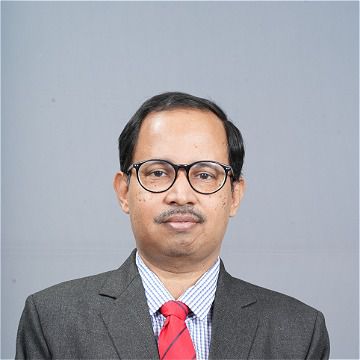Faculty Members

Prof Ankur Dey
Assistant Professor
MCA (Master of Computer Applications)
Date of Joining LJICA 2nd July, 2012.
Area of Interest
Programming using .NET Technologies (C# & VB), Network Security, Advanced Networking, Advanced Data Structures in C & C++, Viruses & Hacking.
Majors Degrees
Master of Computer Applications from MG University with High Distinction
Post Graduate Diploma in Computer Applications from IGNOU with Distinction
Certificate In Computing from Ignou with Distinction
Bachelors of Science from BU with Second Division
Certified Courses
Master Diploma in Software Engineering from Apple Industries, Baroda with High Distinction
Java Certification from S.S.I. Ltd., Baroda with Grade A
Oracle 8i Certification from Oracle Inc. with High Distinction
Visual Basic from Apple Industries, Baroda with High Distinction
Visual Basic .NET from S.S.I. Ltd., Baroda with Grade A
ASP.Net 3.5 Training
- Currently working as an Asstistant Professor in L.J. Institute of Computer Applications, Ahmedabad since Jul 2012.
- Worked as Senior Lecturer in GIE, Ahmedabad from Mar 2006 to Apr 2012.
- Worked as Lecturer in Pentasoft Technologies, Baroda from Jul 2000 to Jan 2006.
- Worked as Lecturer in BITS, Baroda from Feb 1997 to Jun 2000.
- Worked as OJT [On-Job Trainee], IPCL, Baroda, Jun 1996.
Subjects Taught [Under Graduate – IMCA at at LJMCA, GTU, BIT/BIS at GIE]
C, C++, VC++, Advanced Data Structures using C, DBMS, Scripting in System Software, Object Oriented Programming with Java, SAD, VB 6, Operation Research, User Defined Project (PHP, VB.Net, C#.Net), Computer Networks, WordStar, Lotus with WYSIWYG, FORTRAN, COBOL, Assembly LanguageSubjects Taught [Post Graduate – MCA at LJMCA, GTU, MIT/MIS at GIE]
Advance Networking with TCP/IP, Network Security, Web Technology & Application Development, Oracle, Java (Advance),Subjects Taught [Post Graduate – ME at LJIET, GTU]
Internet ProtocolsResearch Work:
Research study includes mining of web structure. Web structure mining has main two components such as arcs and nodes. Arcs means link between two web pages and node means web page itself. It is a tedious task to find relevant and authoritative webpage from vast web. Web structure mining plays important role in finding authoritative and relevant web pages. There are two basic algorithms, works on web structure mining such as PageRank and HITS which provides efficient search results. PageRank algorithm used by one of famous search engine, Google. HITS provides two types of rank score Hub and Authority score. The aim of research study is to find an efficient web page rank algorithm using web structure mining. I have divided research study in following four phases such as literature review, identify loophole, proposed algorithm to reduce the effect of the problem found and result and analysis. This way I have decide my research scope. However, I have collected the research papers which are related to web structure mining. After collecting numerous research papers, I have analysed the research paper and distinguished paper which are purely based on web structure. During the observation I have found the mutual reinforcement problem. I have decided to work on mutual reinforcement problem. Mutual reinforcement means creating a link between web pages from the same domain and to the same domain, just to improve the rank of web pages. I have collected data from cs.torrento.edu website and cleaned it according to the requirements. To reduce the mutual reinforcement effect author has proposed three different parameters such number of inlink from different domain, number of outlink from different domain and reachability. I have also checked correlation of proposed parameters with the relevancy of web pages. It has been observed that there is a positive correlation between proposed parameters and relevancy of the web page. In proposed algorithm (IPRA) I have used all the proposed parameters. I have reduced the links between web pages with the help of reachability value. In research study I have proposed the algorithm (IPRA) through which mutual reinforcement effect will be reduced. The fourth phase is result and analysis in that I have analysed the proposed algorithm with the two analysis techniques. First is independent variable t-test. By using python scripts, I have generated data for the analysis and check the significance of result at 95%. To check how much mutual reinforcement effect will be reduced through the proposed algorithm(IPRA), I have used precision and recall test. I have generated the data using python scripts for the calculation of precision, recall and accuracy. In this research study I have also used different graphs to represent the result set. I have used different tool to represent chart such as Ms-Excel, Tableau, R programming and Python
Workshops
Conducted Workshop on "WordPress" at LJMCA.
Conducted Workshop on "Web Development using PHP, JQuery & other Tools" at LJMCA
Workshop on “Cloud based Application Development using Python(Django + MongoDB) from GTU at LJ Institute of Computer Applications from 15th March to 19th March,2019.
Workshop on "Computer Programming" by IIT - Bombay at Nirma University on May - Jun 14
Workshop on “Research Methodology” at L J Institute of Computer Applications in February’13
Workshop on Education - Imagination, New Delhi.
FDP
FDP on "Effective Teaching" at LJ Institute of Computer Applications in November ’13
FDP on "Data Analysis Using Excel with Hands on training on MS Excel 2007" at LJ Institute of Computer Applications on April’13
Seminars
Seminar on "Ethical hacking and Information Security" by Sunny Vaghela at LJ Institute of Computer Applications on 14th August’13
Seminar on Cyber Security, Ahmedabad
Seminar on WCF & WPF, Ahmedabad in Sep 11
Seminar on SQL Server 2008, Ahmedabad in Jan 10
Conducted & Attended Seminars on Biometric Technologies, MS Surface Technology, TSR's using Advance C etc.
Contact
LJ Institute of Computer Appliactions,
LJ Campus, Near Sarkhej-Sanand Circle,
Off. S.G. Road, Ahmedabad-382210
Phone: 9099063417
Email: ankur.dey@ljinstitutes.edu.in
